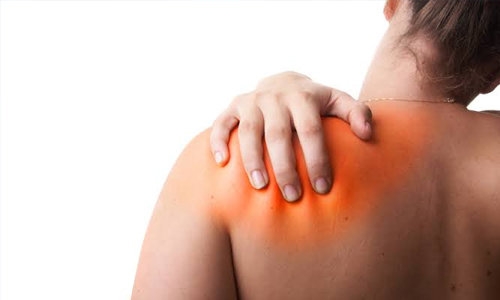Shoulder
December 27, 2019
The shoulder is made up of bones, Upper Arm (Humerus), Shoulder Blade (Scapula) and Collar Bone (Clavicle). Arm Is kept in shoulder socket by rotator cuffs. These muscles & tendons form a covering around the head of upper arm bone and attached to shoulder blade. There is a lubricating sac called a bursa between the rotator cuff and the bone on top of shoulder (Acromion). The bursa allows the rotator cuff tendons to glide freely when during movement of the arm. The rotator cuff is a common source of pain in the shoulder. Pain can be the result of Tendinitis in which the rotator cuff tendons can be irritated or damaged. Pain can be due to Bursitis in which the bursa can become inflamed & swell […]
December 26, 2019
Frozen shoulder is also known as adhesive capsulitis. In adhesive capsulitis, the shoulder joint capsule has adhesions and inflammation. Adhesions are fibrotic bands of scar tissue which joins the surfaces of two anatomic surfaces that limits the motion of the shoulder. This condition is more common in females and the prevalence is more command in diabetics and after the age of 40. There are several shoulder conditions that cause pain and reduce motion. The primary symptoms of the frozen shoulder are pain and stiffness. Pain may be worse at night and is provoked by laying on the affected shoulder. Normal activity like dressing answering the phone or working will become difficult. Primarily frozen shoulder occurs without an identifiable cause. Frozen shoulder may occur as a result […]
December 26, 2019
You reach into the backseat of your car and suddenly your shoulder twinges. Or maybe your it starts clicking during your weekly tennis game. Whatever the cause, you want pain relief. Our sports medicine experts share the common causes of shoulder pain and which treatments work best… Being flexible is terrific in yoga class, on the dance floor and when playing Nintendo Wii with your kids. But it’s a drawback when it comes to your shoulder. That’s because having very flexible joints, known as hypermobility, cause instability in the shoulder and increases risk of injury and pain, says Ralph Gambardella, M.D., orthopedic surgeon and sports medicine specialist at Kerlan-Jobe Orthopaedic Clinic in Los Angeles. You’re also at risk if you sit behind a desk all day. […]



